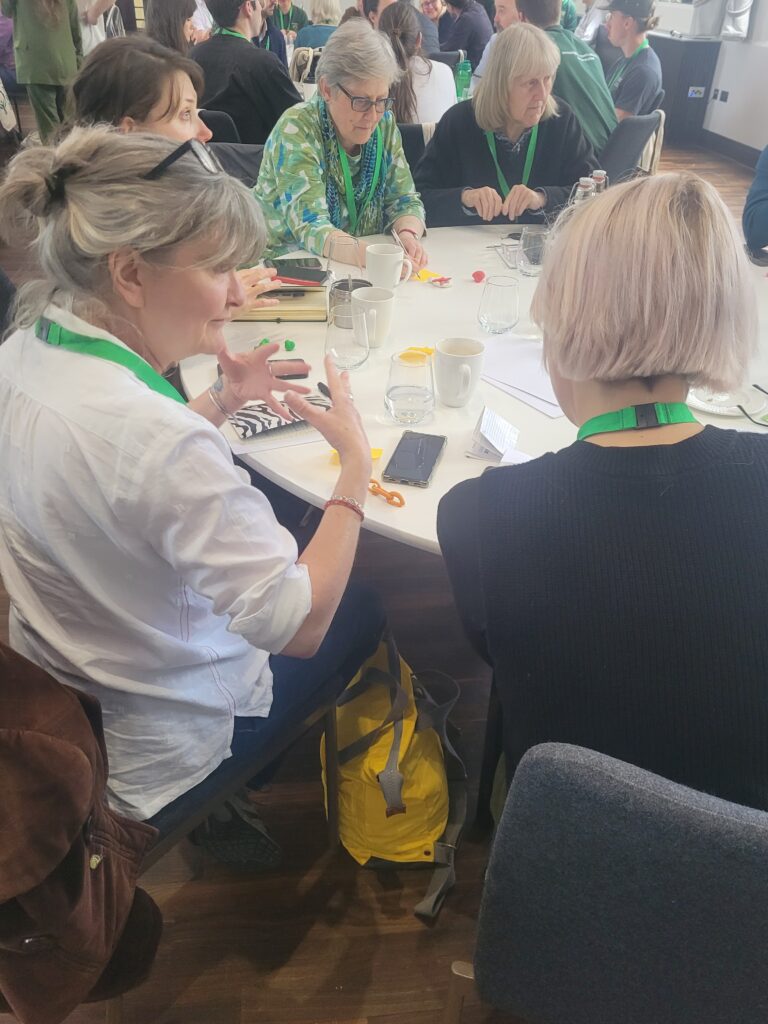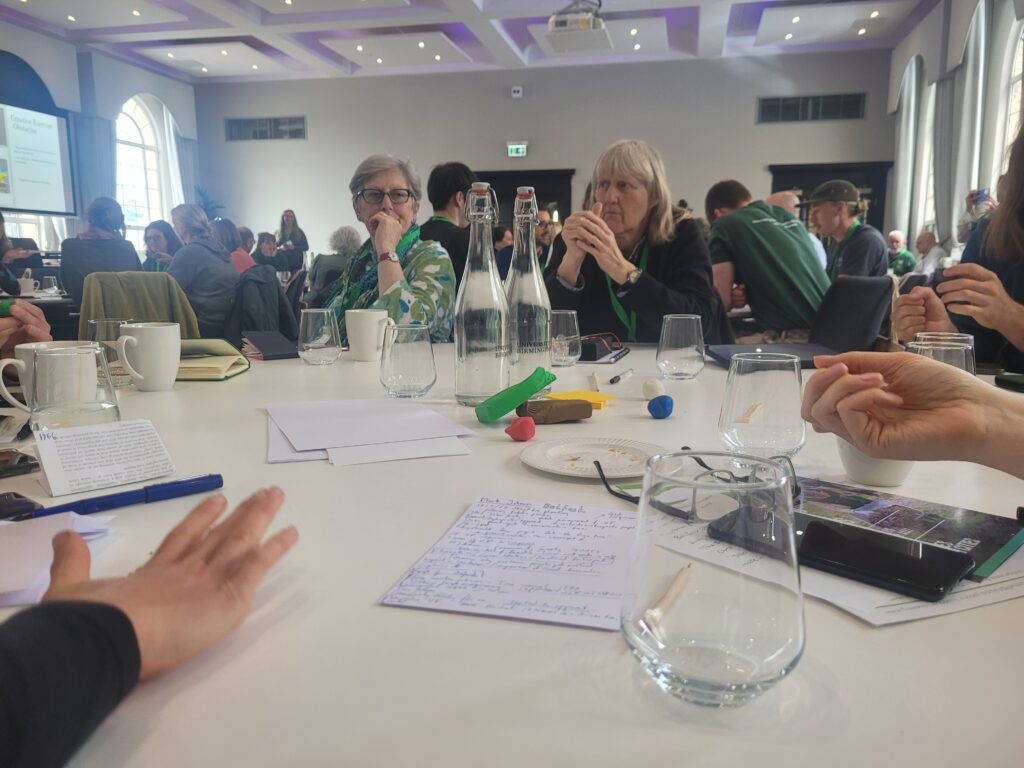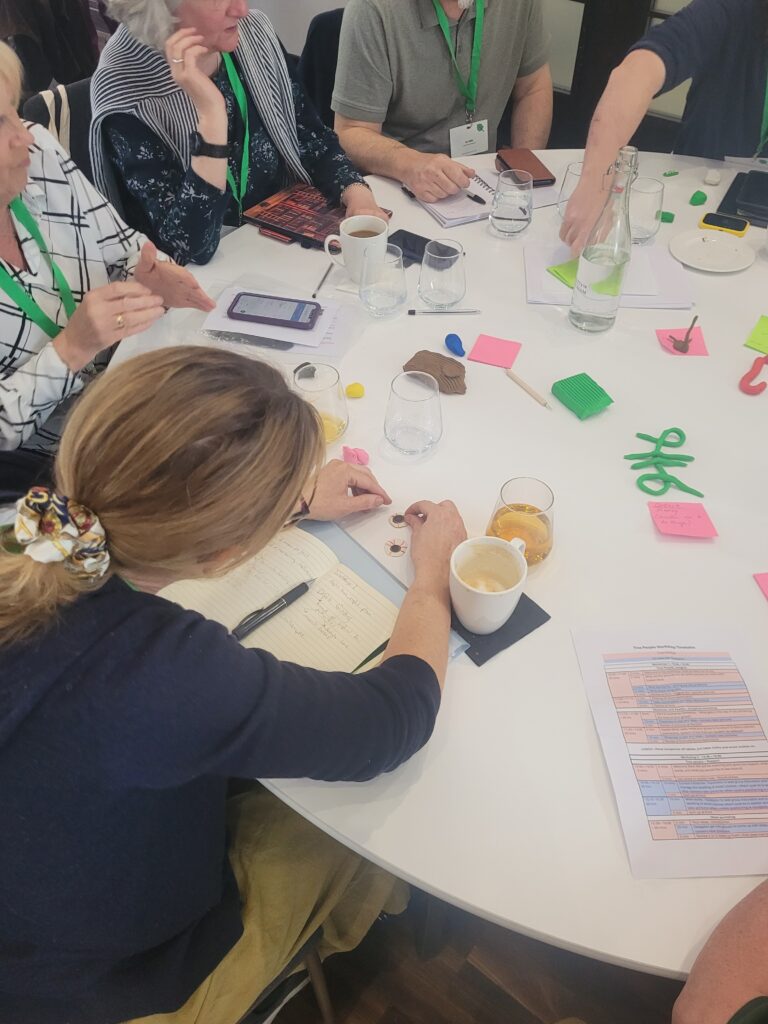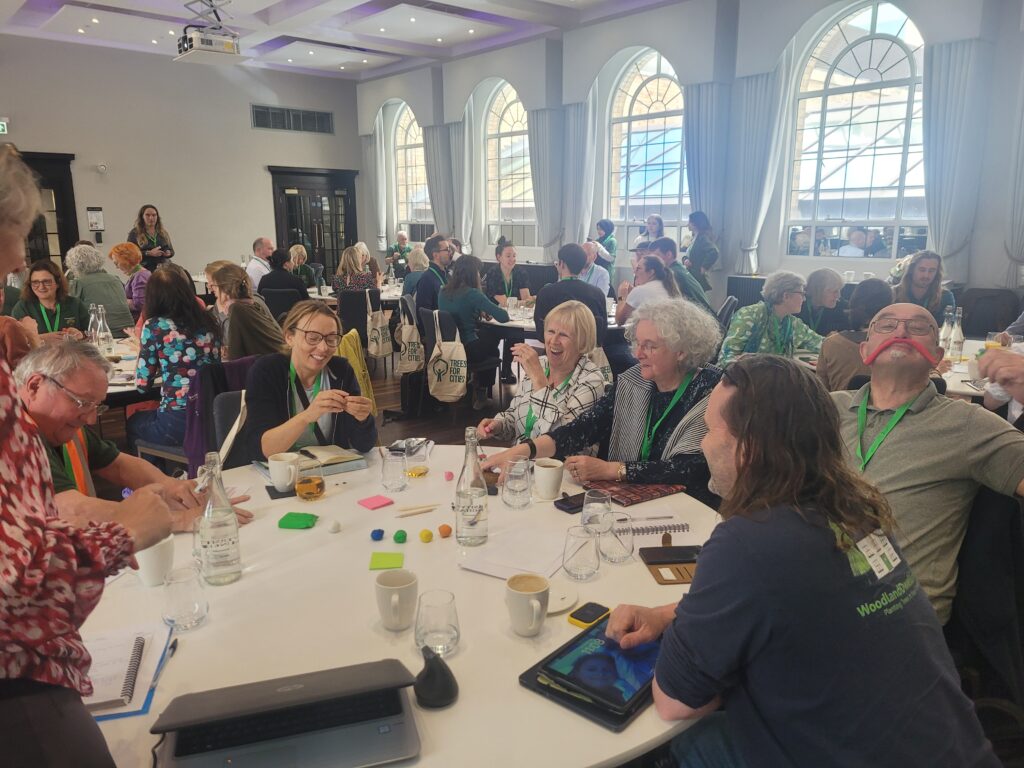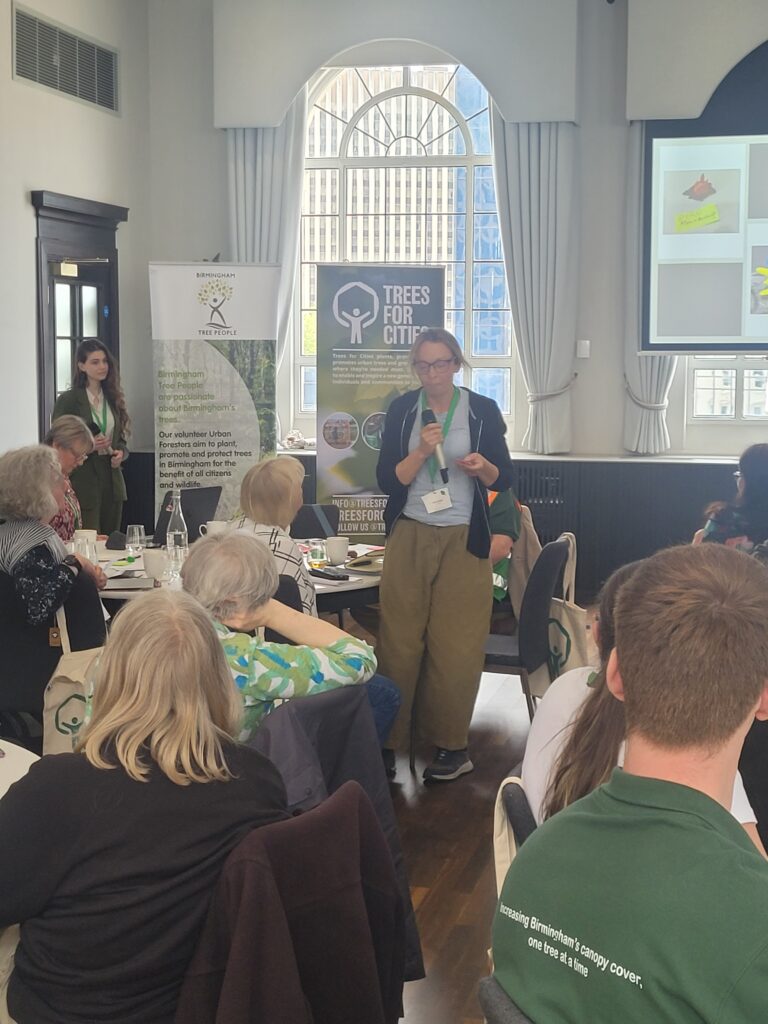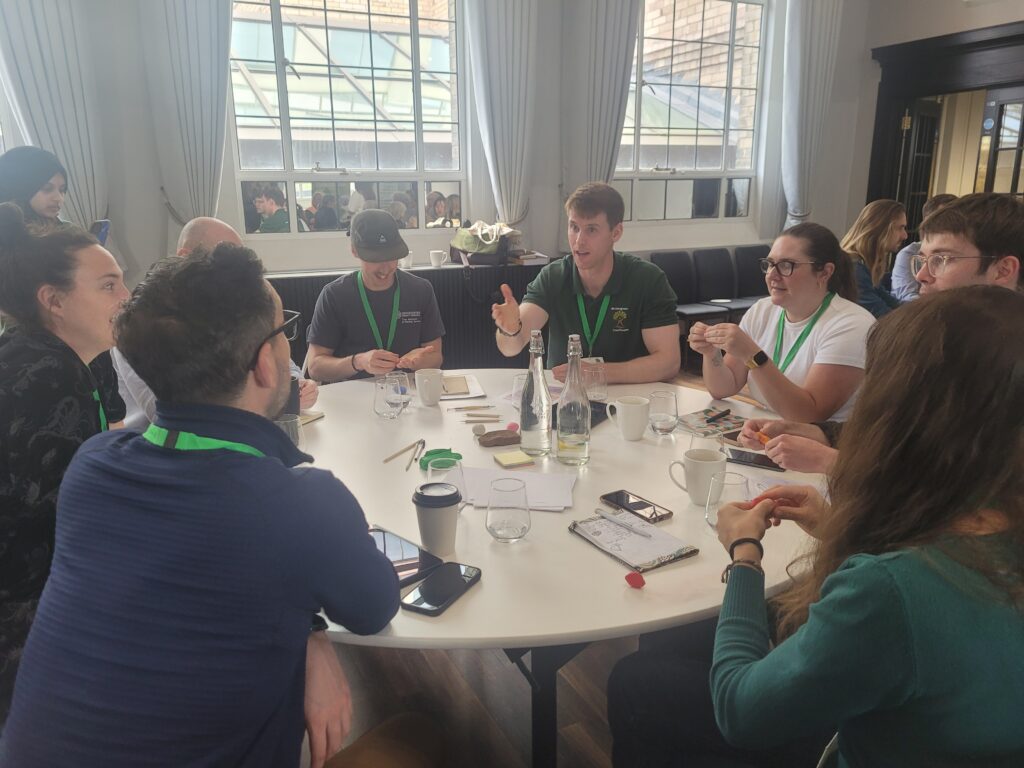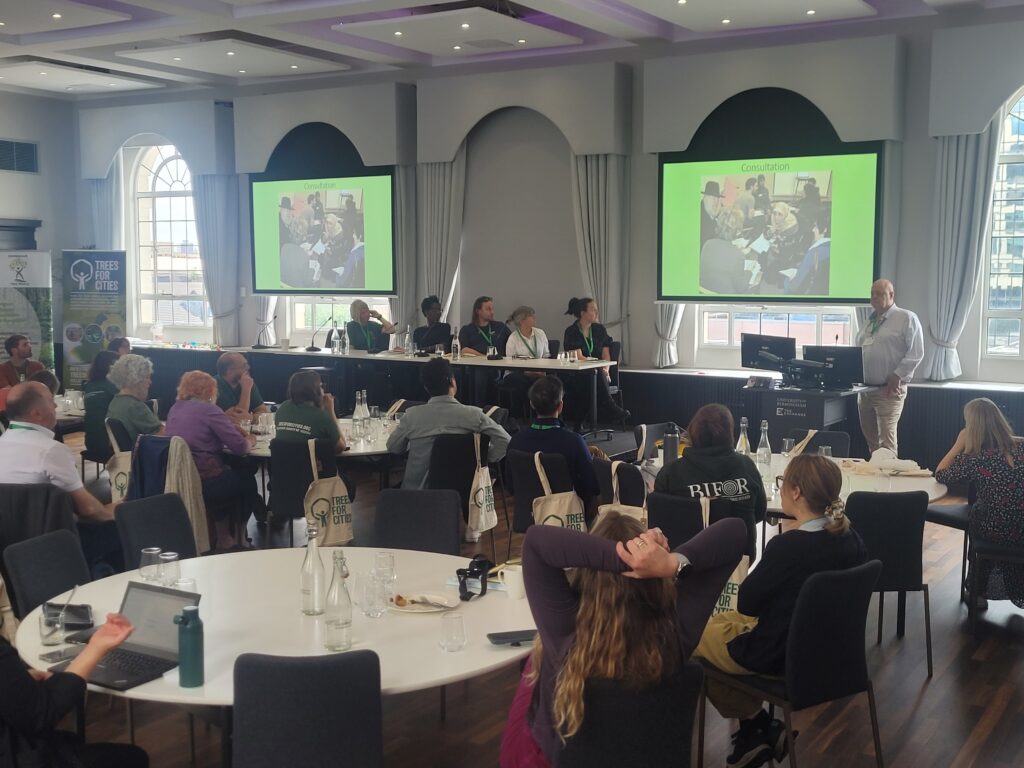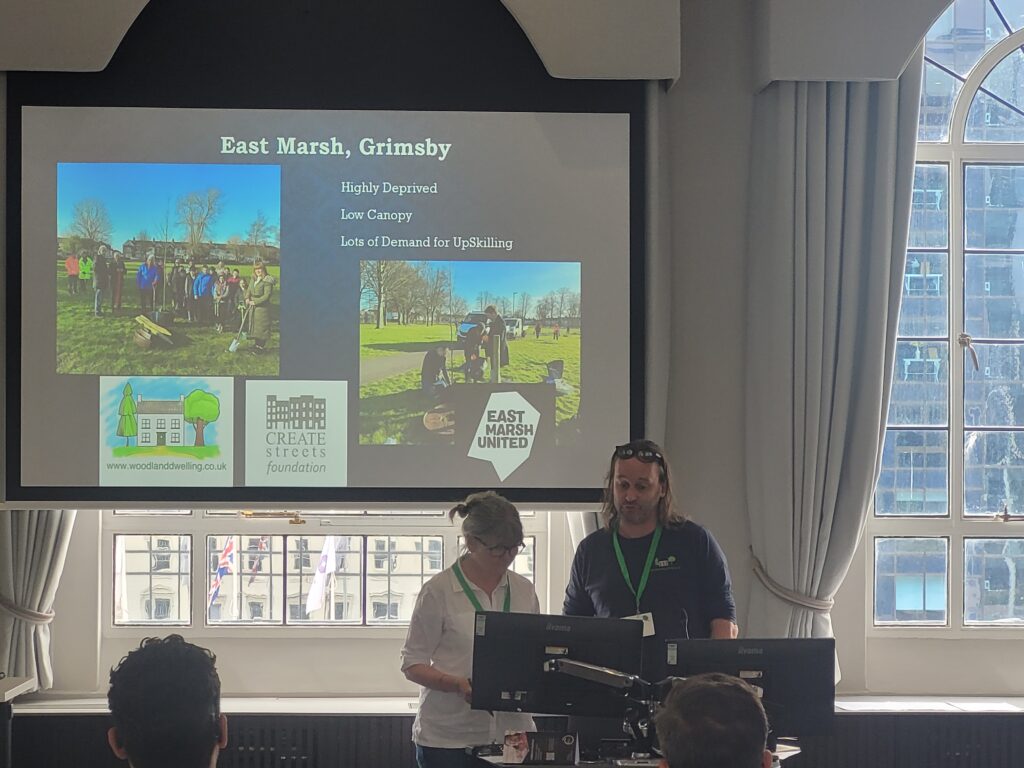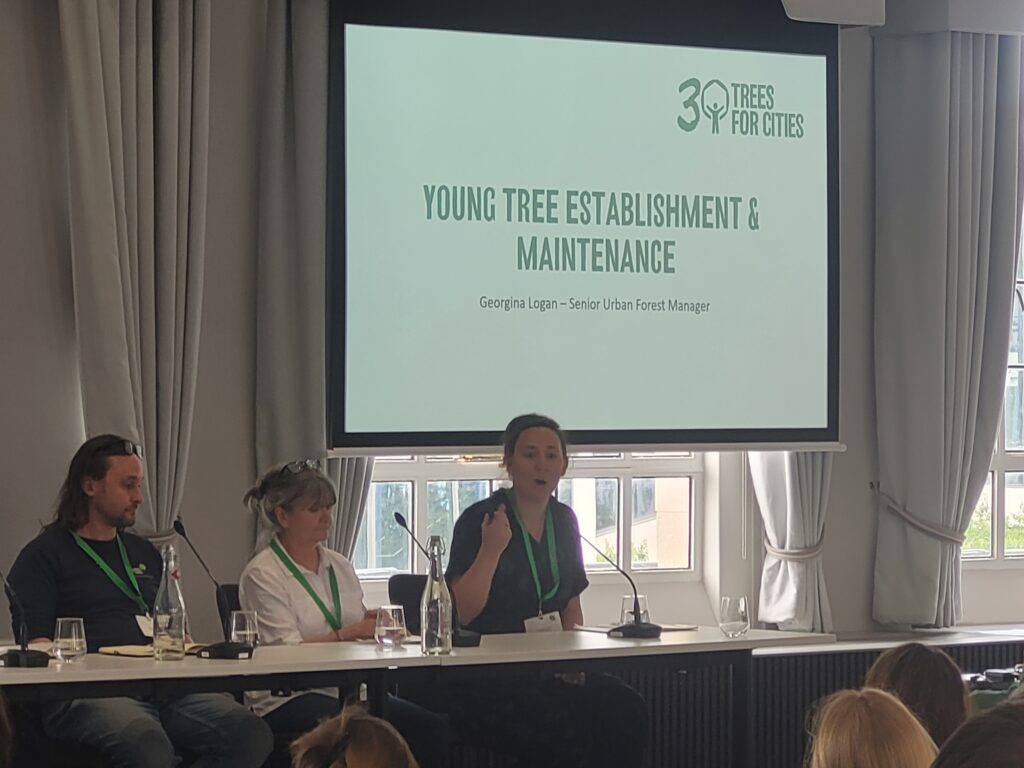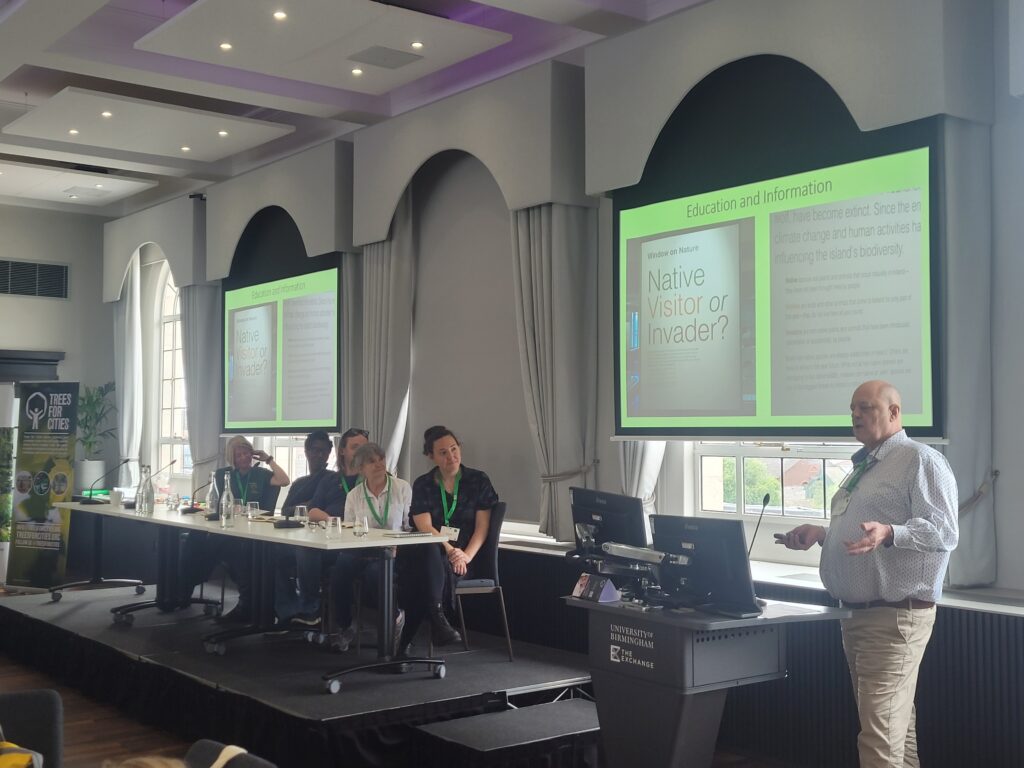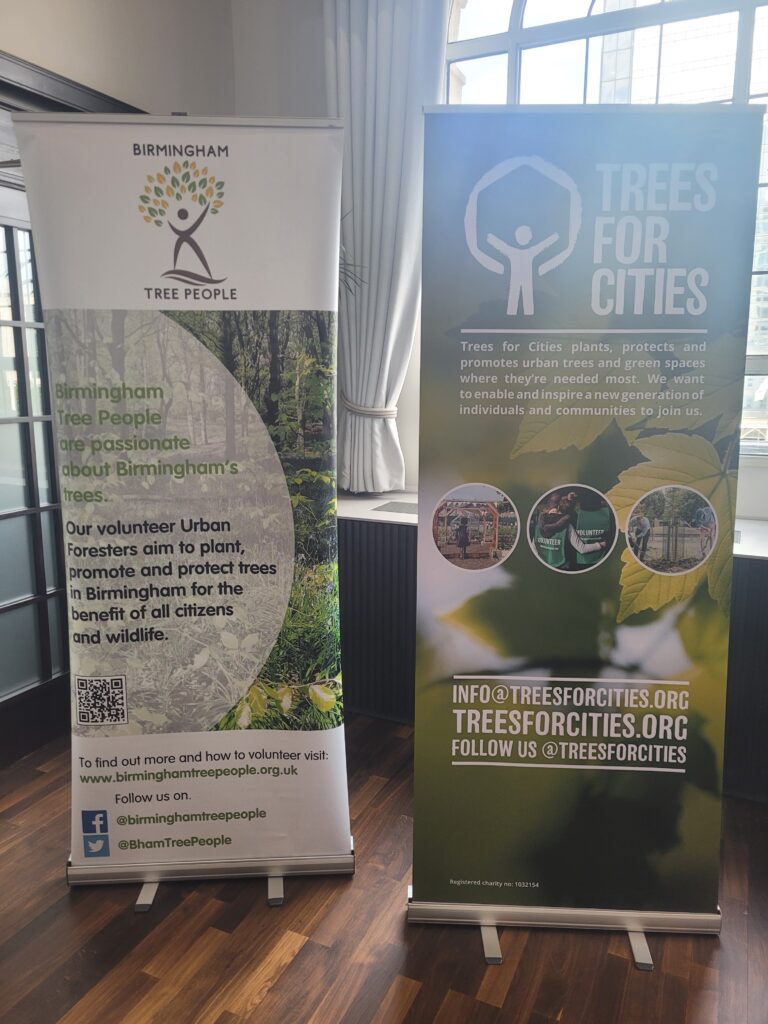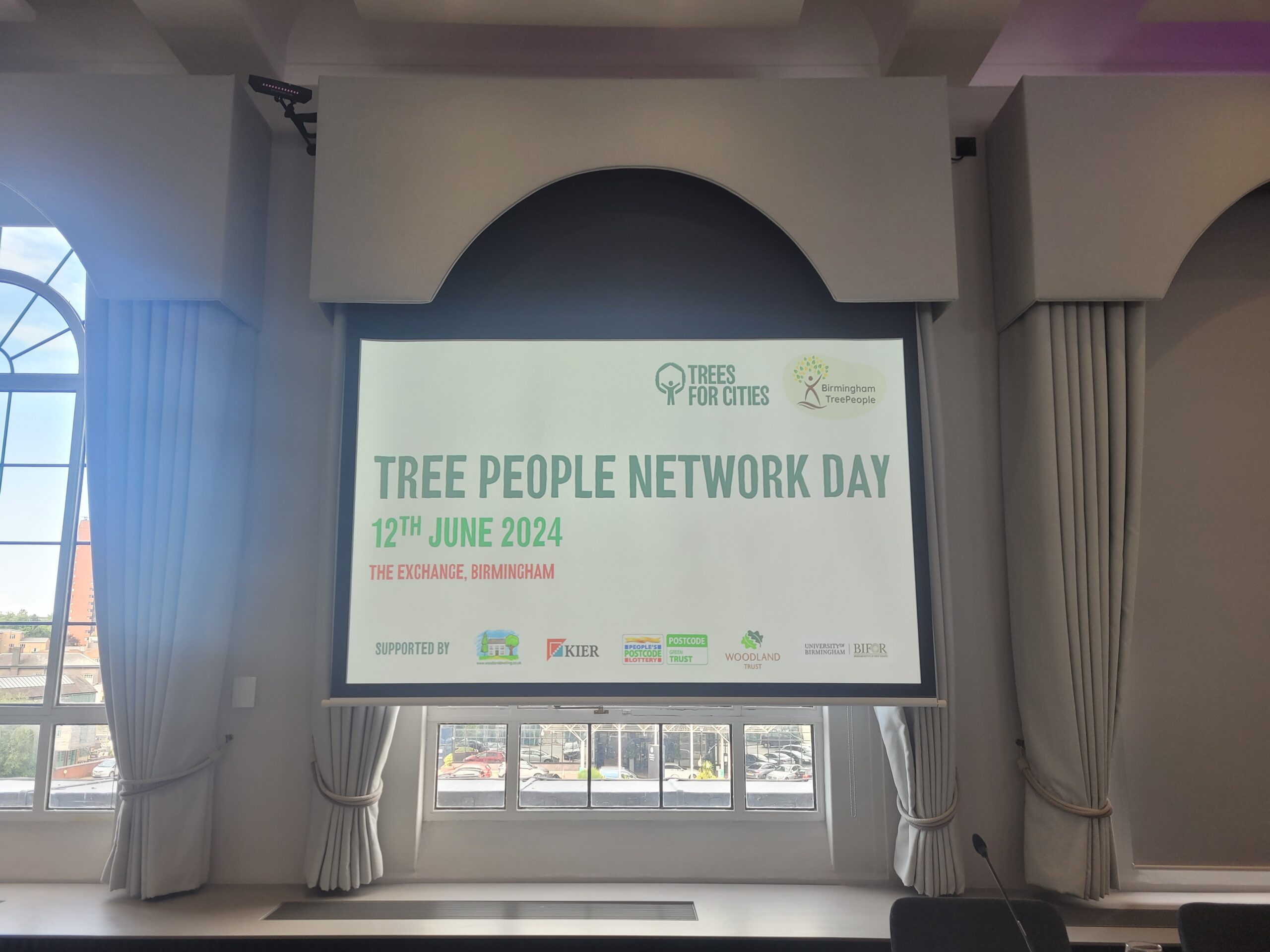
What would a green network of tree people around our city look like? On the 12th June 2024, many tree people from organisations all over the country came to find out. Trees for Cities, in partnership with us at Birmingham TreePeople, organised the first Tree People Network Day, where community group representatives came to learn and share with a professional panel of experienced speakers. In the spirit of empowering communities with knowledge to undertake local tree maintenance, the day was dedicated to exploring ways in which we can create a city-wide web to connect us, meaning the urban forest can receive the love it desperately needs.
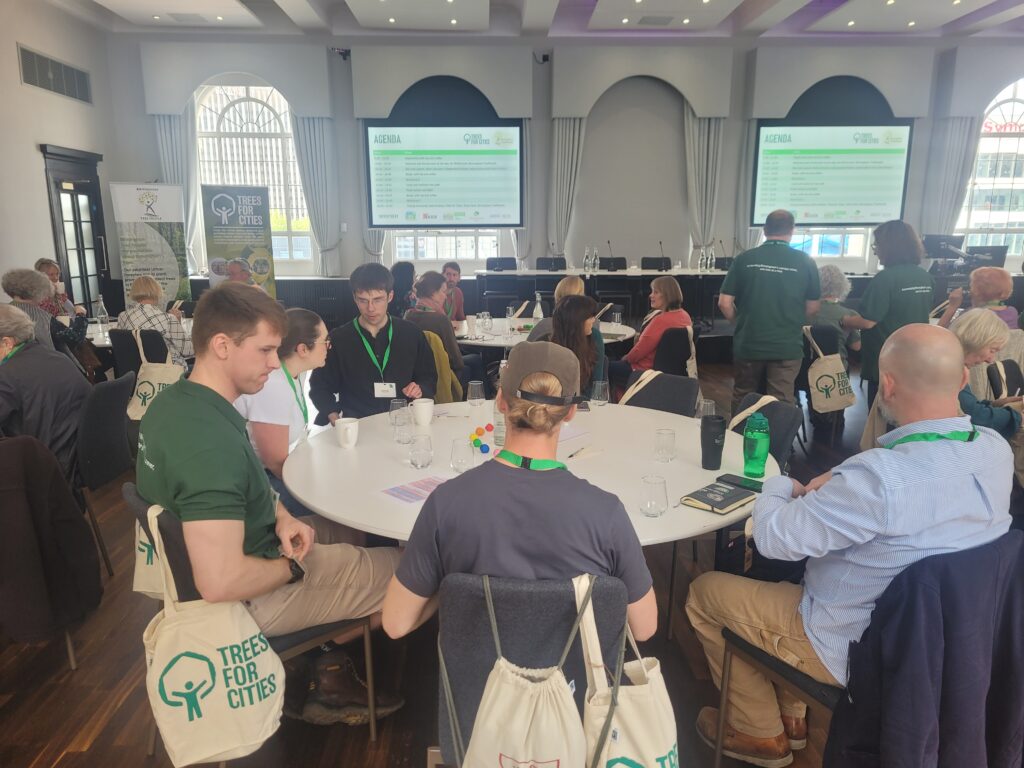
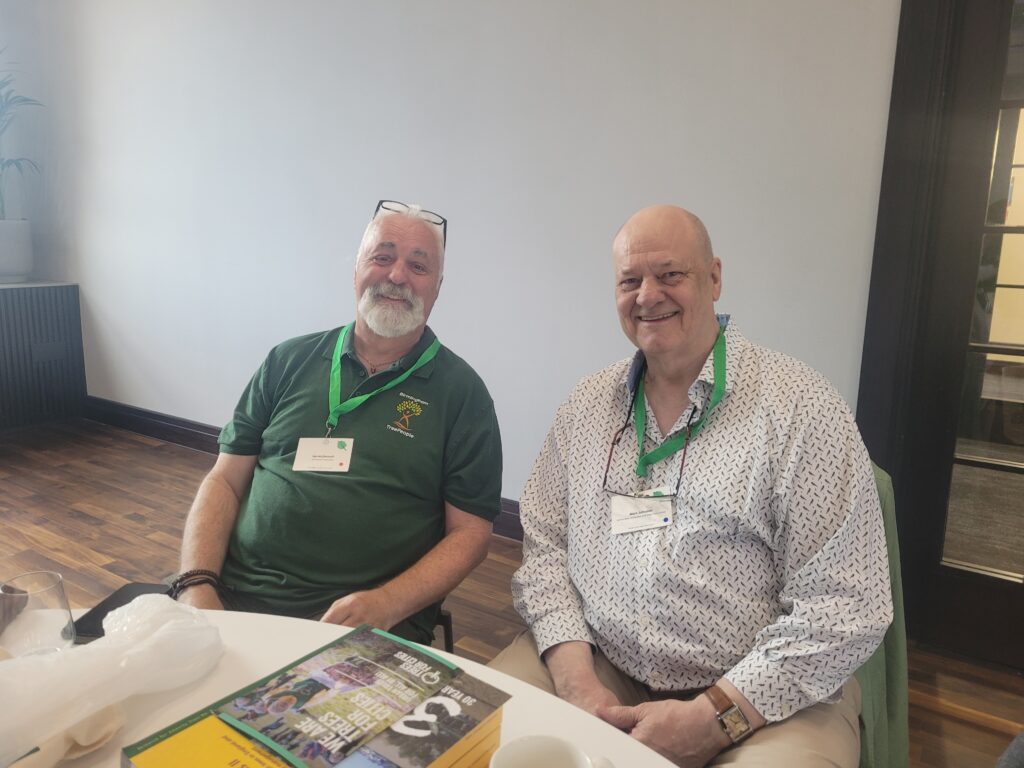
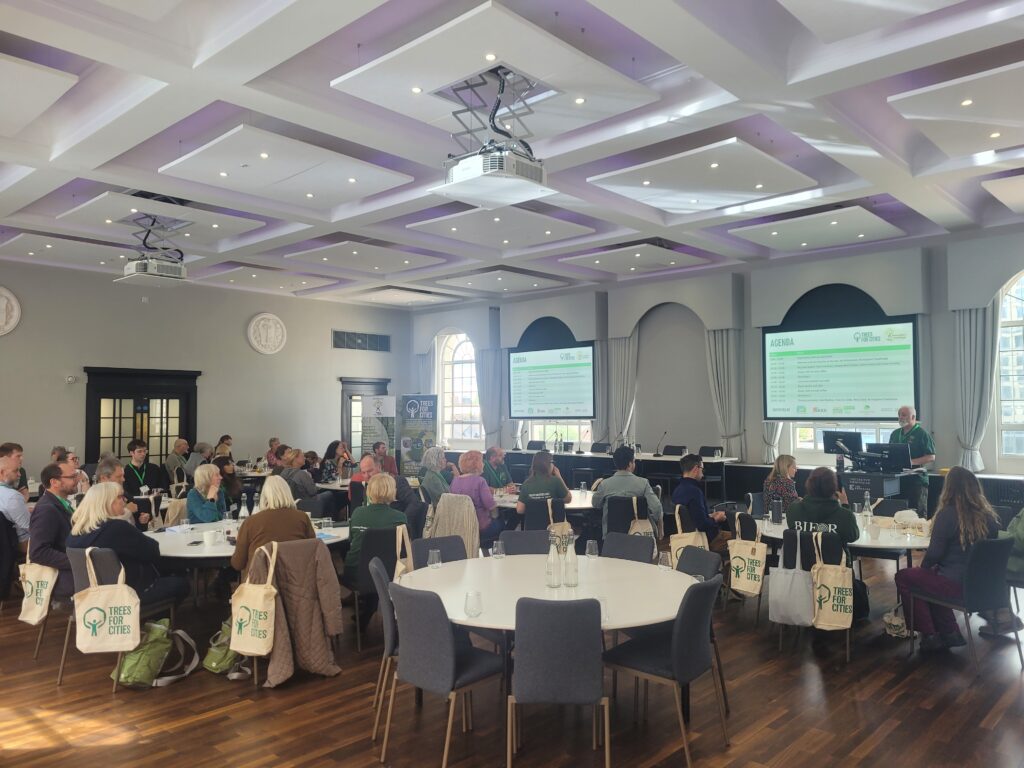
Ian McDermott (BTP) gave the opening remarks of thanks and praise for the organising of the event and those involved, moving onto say that although urban tree people are now relatively recognisable in government, trees are still predominantly planted into rural areas where people don’t live, and instead travel to visit – it’s time for a change. “From today, we want a network for the voice of the trees in the urban environment.”
A Tree Person’s Account from Mark Johnston:
A personal and historical view of community engagement
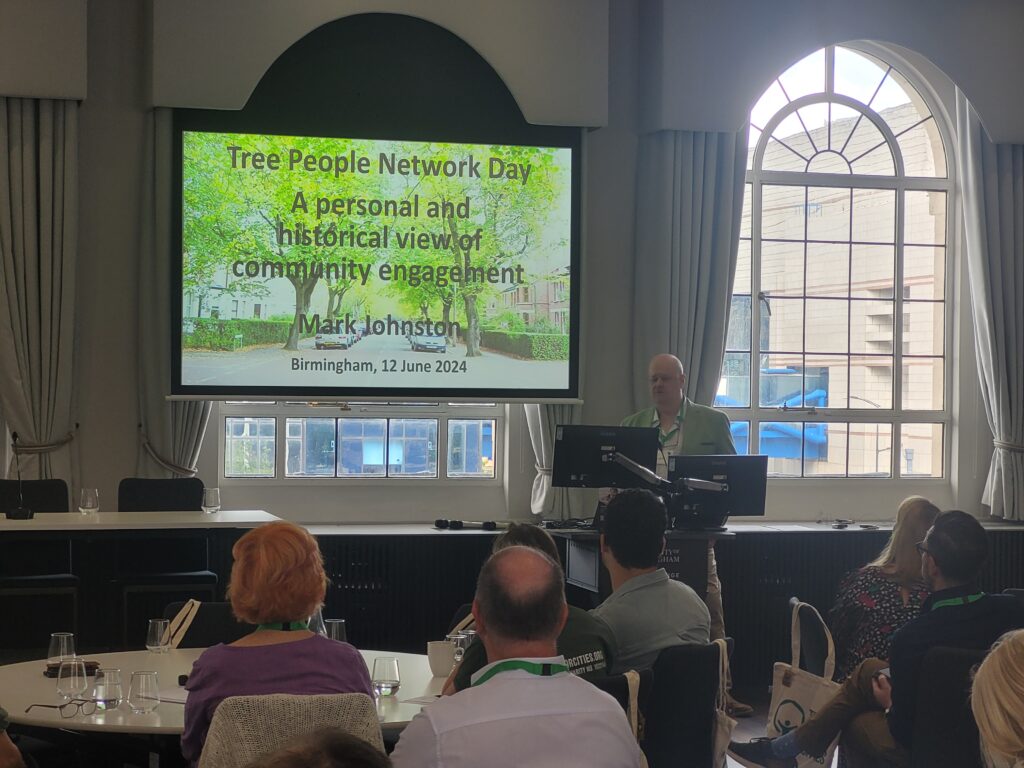
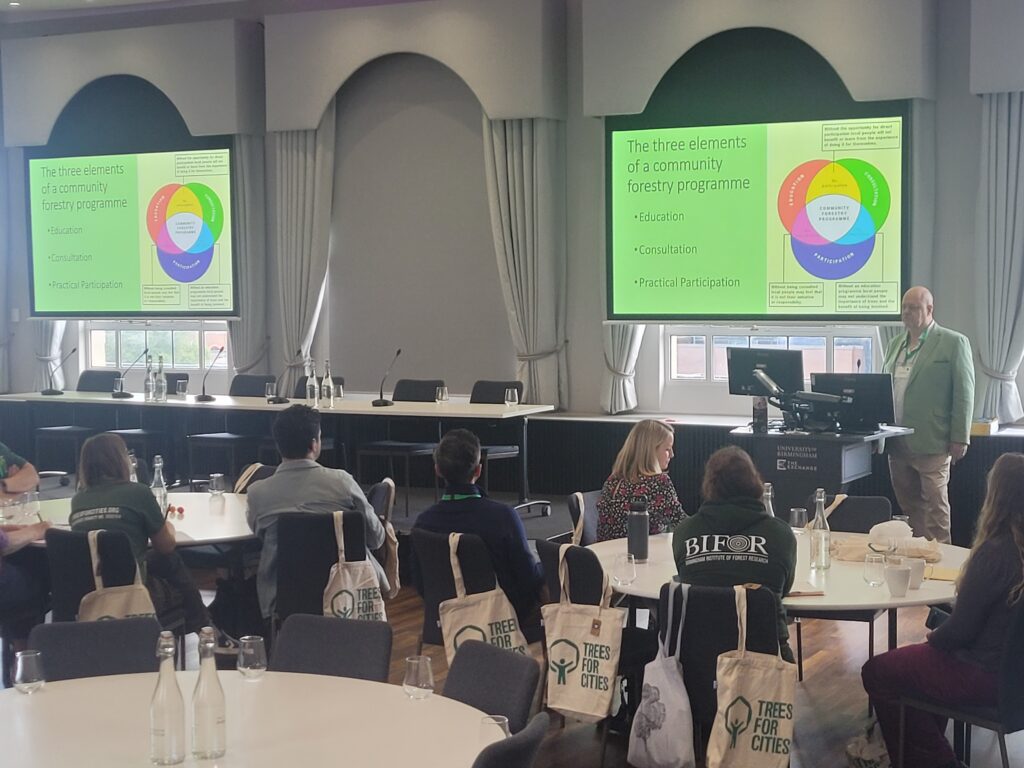
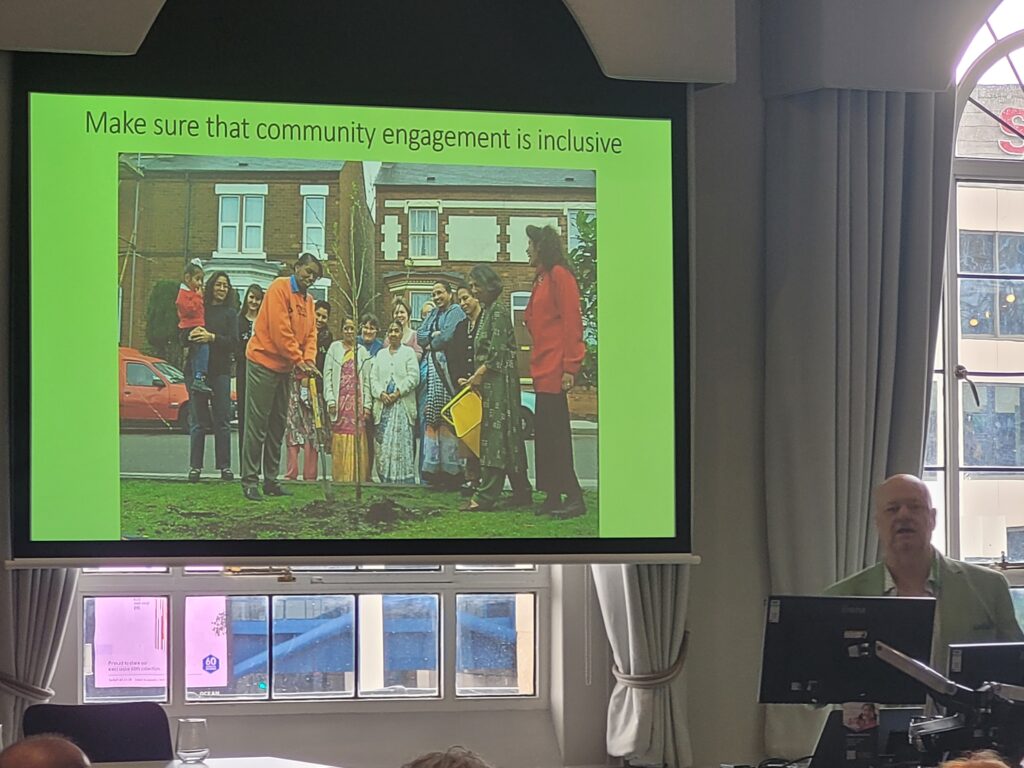
After introducing Mark Johnston to the podium, the independent scholar in arboriculture, landscape, and urban forestry reiterated his fifty-year career in the field, beginning with the history of the Belfast urban forest. Unplanned, ad hoc, and detached from the community, residents were not involved in consultation or engagement exercises for decades (especially women), and therefore the tree equity suffered greatly in poorer areas. He faced the same issues in Wandsworth; when trees were planted at Battersea flats without consultation, they were vandalised, leading to the conclusion that community consultation and engagement was imperative to ensure the establishment of the trees.
Eric Jorgensen coined the phrase ‘urban forestry’ in Toronto, focusing on the ‘people aspects’ of the trees, and how they can improve the public welfare. With the three aspects of community forestry being education, consultation, and practical participation, the LA TreePeople – started by Andy Lipkis, the author of ‘The Simple Act of Planting a Tree’, whom we are also greatly enthused by – with their strong background in community engagement and informed planting, worked with Mark on the Forest of London project, which inspired further projects, support structures, and residential involvement.
Mark co-authored ‘Trees in Towns II’, an executive report involving expensive tree strategy, a document that has predominantly been online-only. However, Trees for Cities and Birmingham TreePeople we humbled to receive a signed copy of the report, thanking us for the great work we have been doing to advance the urban forest, to which we are perpetually grateful for the gesture and kind words of encouragement and motivation. And to motivate further, his closing words were (to paraphrase), “Look to the future – this climate crisis will be a huge challenge for the next generation, but trees are a huge part of the solution, so it’s about changing hearts and minds.”
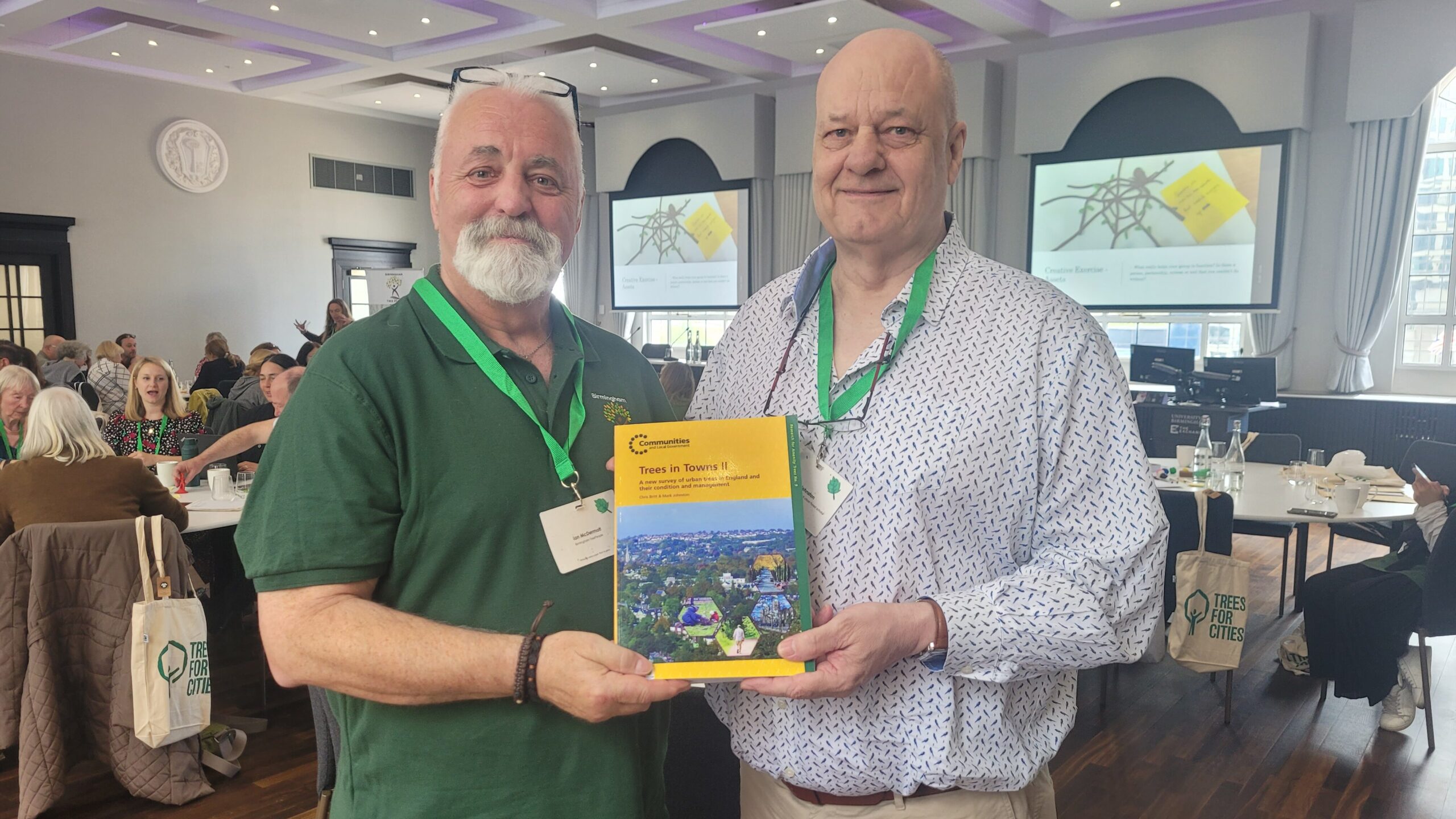
Network Group Sessions
The ensuing group sessions were run by Catherine Nuttgens, Nuttgens Urban Forestry, with an extensive certified background in urban forestry and consultation. Using some rather ‘nifty tech’, each table was able to create a live word-cloud to brainstorm their shared ideas with the room, the first focusing on the main aims of a Tree People Network, and the second concerned the missing aims in the UK. The second half of the session included using plasticine models to represent firstly obstacles to the network, and secondly assets – one table certainly had fun bringing their ideas to life with plenty of laughter and stimulating concepts.
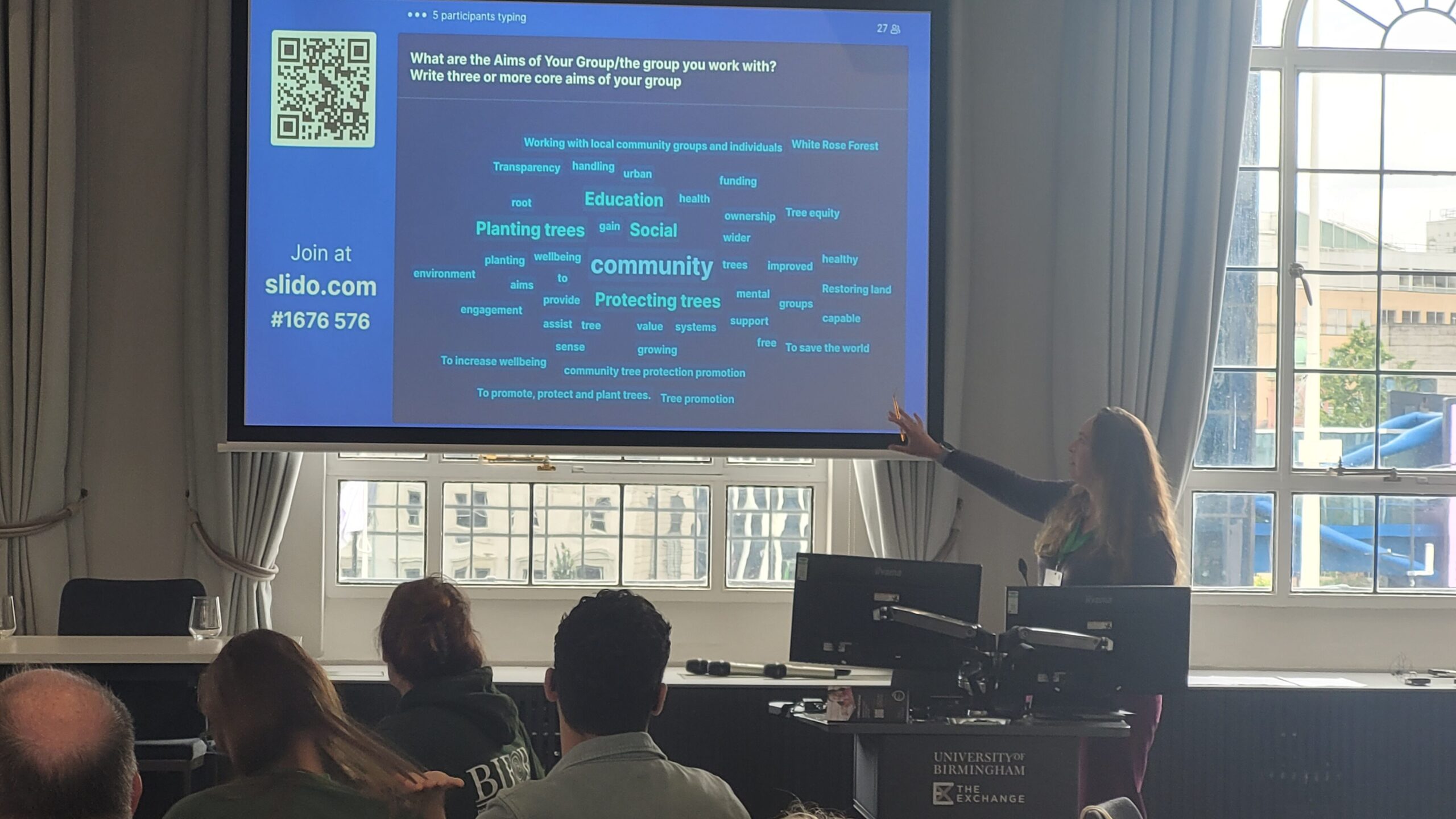
Rooftop Tree Walk
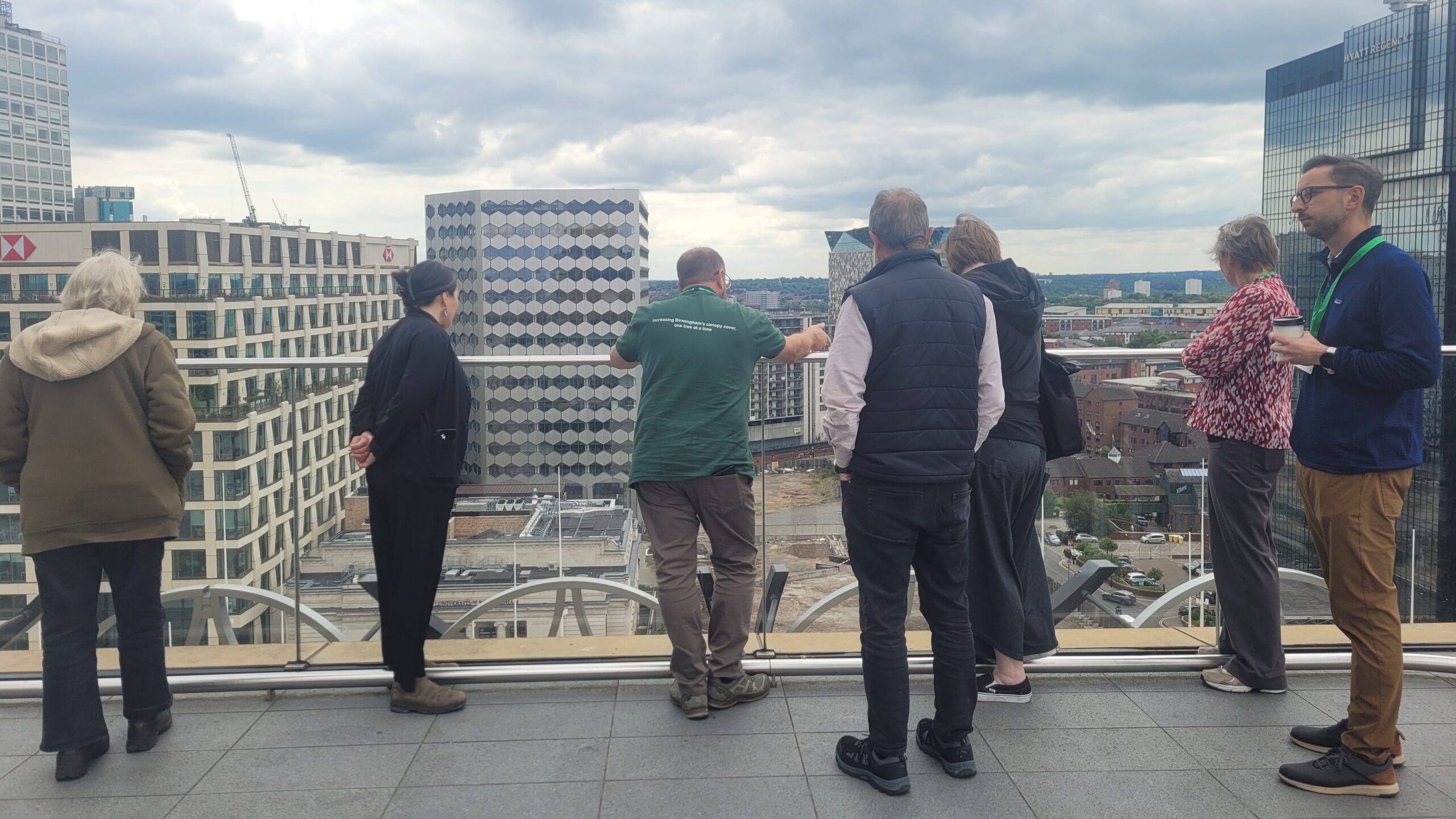
During the dinnertime break, Simon Needle (Birmingham City Council, BTP) led an optional rooftop tree walk at Birmingham Library, showing attendees around the variation of the garden, as well as drawing attention to certain views from the balcony. He told the loss story of the Broad Street Plane, the last of a row of 1800’s trees, sadly removed for the new Metro line when it was unfortunately missed out of the planning concepts. Sometimes we can’t win them all, but that’s why the wins we have should be celebrated.
Tree People Panel Presentations and Q&A
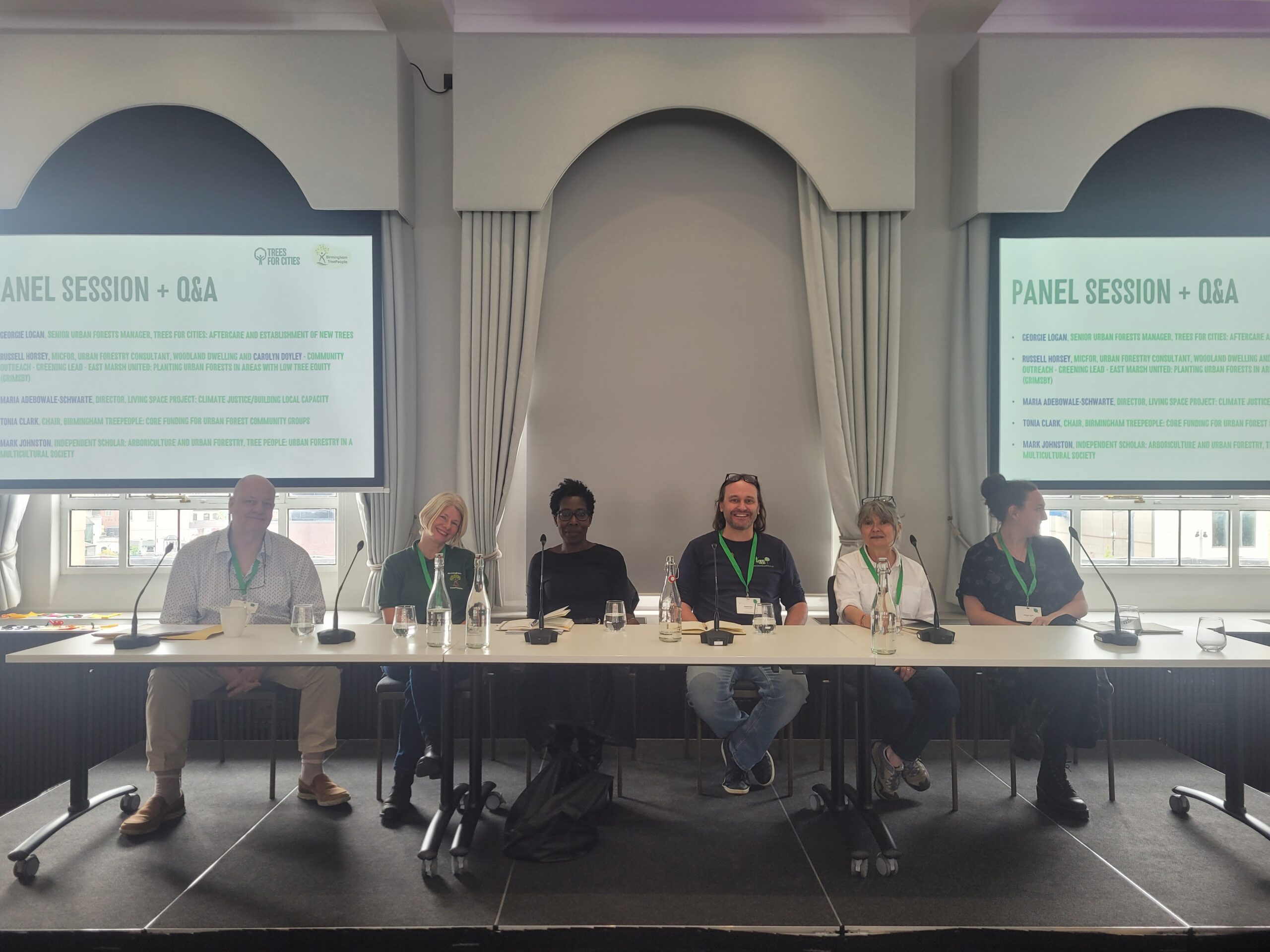
During the afternoon panel sessions, participants had a chance to see short, insightful presentations from a range of professionals in the industry, with a Q&A session at the end, giving everyone the opportunity to learn more. Georgia Logan from Trees for Cities discussed all-important tree establishment and aftercare in planting, followed by a double-act from Russell Horsey (Woodland Dwelling, also one of our generous sponsors) and Carolyn Doyley (East Marsh United, Grimsby community group) putting it into practice, explaining their journey working together to target low equity areas. They initially received backlash from certain residents regarding the planted trees, and yet the trees have all survived, due to the upskilling and bond established with the community ensuring the trees’ aftercare and therefore survival.
Maria Adebowale-Schwarte (Living Space Project) was the third panellist, confidently recalling her memory of her mother helping their neighbours with their trees, recognising the hierarchy of need in hindsight. From a climate justice and local capacity perspective, Maria echoed the need for better understanding of the value and heritage of trees, with a focus on fairness (equity) to the people and the planet by planting them where they’re needed most. She stated, “I’m gobsmacked at what I’ve learned today, and I want to take the things I’ve learned straight back. […] Equality, equity, and diversity – the key is consultation.” Maria has a strong theme of placemaking within her work, but how can make our places better if they’re not green?
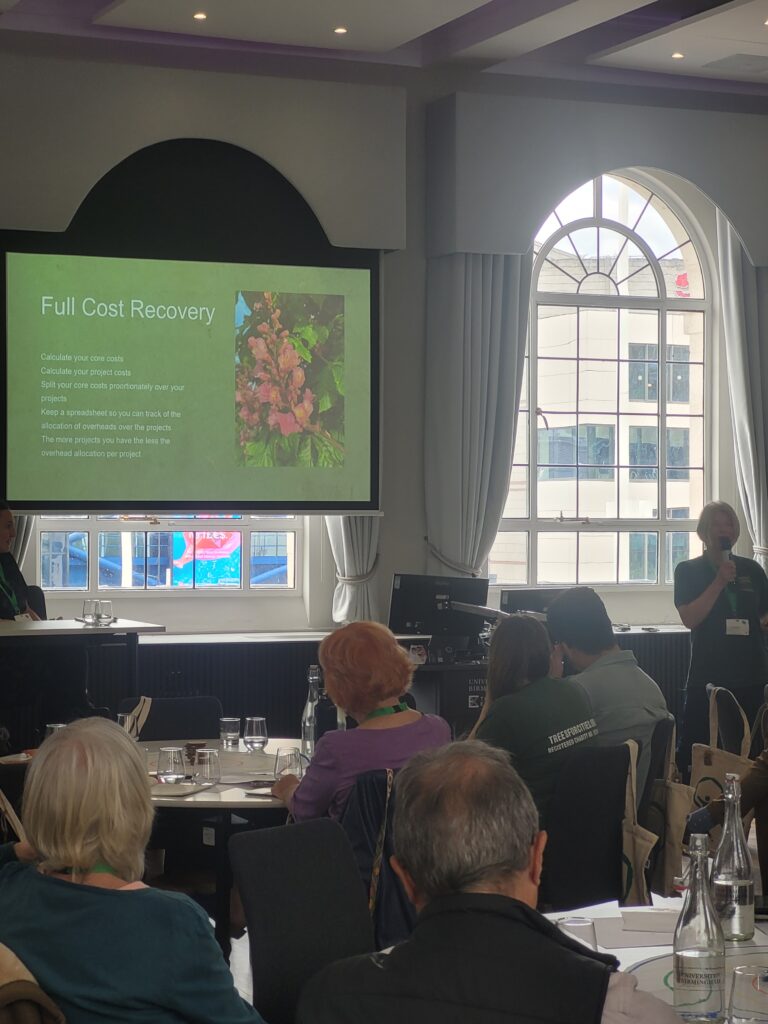
Birmingham TreePeople’s own Tonia Clark, talked about funding for community groups, starting with core funding for overheads like admin, insurance, workspace and management, and how it helps to have someone on your committee with finance experience.
Taking to the stand again as the final panellist, Mark Johnston discussed multicultural society in terms of urban forestry, at first continuing his story from his morning presentation regarding Wandsworth. Having learned a lesson, the second time they attempted to plant trees at Battersea, the community were consulted beforehand. It encouraged children and family involvement, and thus – this time – the trees remained.
Mark (a self-professed lover of reggae music) stated that to reach a diverse audience we need to use the right language that’s accessible to everyone, and not to expect them to come to you; you must go to them. In Belfast, during a time of great turmoil, Mark felt as though it was his duty to bring people together through the power of trees; he planted trees with the only mix-gendered school in the area, alongside a specialist disabled school, to promote diversity within green space and proving that trees are for everyone.
After a small Q&A session, and an afternoon session discussing more networking ideas, the first Tree People Network Day drew to a close. The day was filled with energy and ideas, sharing and learning, and we look forward to establishing our Tree People Network, feeding and allowing it to grow strong like a tree.
We would like to thank Trees for Cities, who organised and hosted this conference in partnership with Birmingham TreePeople, and our charitable sponsors Woodland Dwelling, Kier Group, The Woodland Trust, University of Birmingham (also our venue hosts), and People’s Postcode Lottery. We look forward to next year.

